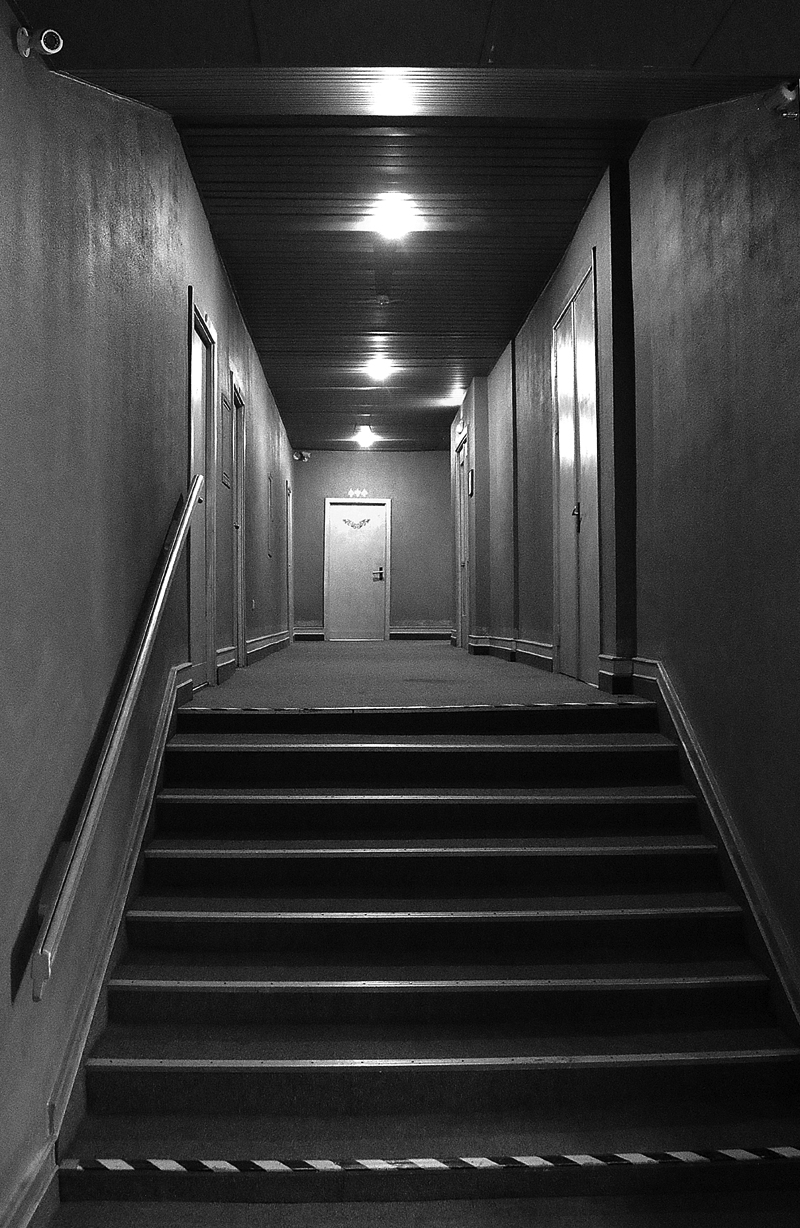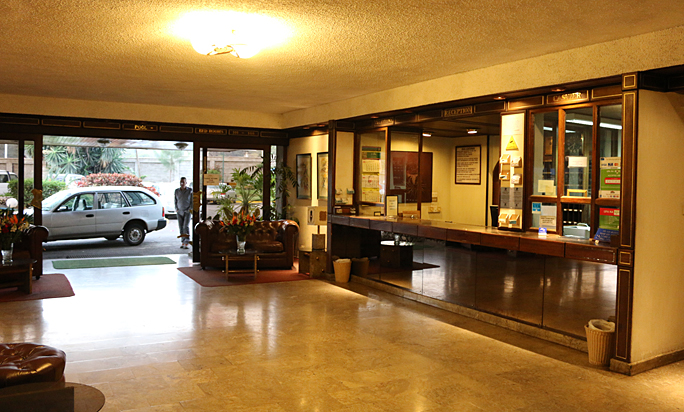Expiration notice: Brian Cohen, we’re sending you limited-time deals for your PTO. You’ve been issued EXTREME DISCOUNTS…Brian, you’re the one. We’re serious: pay up to HALF less! Grab your umbrella, Brian – it’s raining deals!
Probe of Hotel Booking Sites Results in Enforcement Action in the United Kingdom

Those are only four of the actual headlines that scream at me on a regular basis from e-mail messages which I received from a variety of hotel booking sites on the Internet — often enough that I actually ignore them because they usually contain either sales which in no way even comes close to the hype; or the sales are authentic but only seem to apply to some obscure hotel and resort properties which are usually of little interest.
You might have received similar e-mail messages from these companies and thought to yourself that their marketing efforts appear to straddle the line between questionable and outright deception — including misleading sales tactics, hidden charges, discount claims, and needlessly pressuring customers to book reservations as soon as possible by claiming that only a finite number of rooms remain.
If so, you are not alone. Those aforementioned marketing tactics also caught the eyes of the Competition and Markets Authority — or CMA — in the United Kingdom, which became concerned pertaining to the marketing practices of some of these companies. Back in 2017, the government agency solicited feedback from consumers with this video pertaining to their experiences in booking hotel reservations via the Internet.
An investigation was formally launched on Friday, October 27, 2017 pertaining to the use of purportedly deceptive sales and marketing tactics and whether or not they were in compliance with the Consumer Protection from Unfair Trading Regulations 2008 — which contains a general prohibition against unfair commercial practices and specific prohibitions against misleading actions, misleading omissions and aggressive commercial practices — followed by enforcement action on Thursday, June 28, 2018.
The deadline to implement changes required by undertakings and sector wide compliance is Sunday, September 1, 2019; but the entities in question have reportedly already started taking steps towards improving how they market and sell to customers. Still, their commitments to compliance will be continuously monitored by the Competition and Markets Authority.
“Expedia, Booking.com, Agoda, Hotels.com, ebookers and trivago have been the subject of CMA enforcement action due to serious concerns around issues like pressure selling, misleading discount claims, the effect that commission has on how hotels are ordered on sites, and hidden charges”, according to this official press release from the government agency, which “was concerned that practices such as giving a false impression of a room’s popularity or not displaying the full cost of a room upfront could mislead people, stop them finding the best deal and potentially break consumer protection law.”
Even though not all of the companies engaged in all of the practices detailed below, all of the companies which were under investigation by the Competition and Markets Authority have volunteered to cooperate and agree to implement major changes to the following items:
- Search Results Improving transparency to the consumer as to how hotel and resort properties are ranked after her or she has entered the pertinent search requirements — for example, informing people as to when search results have been affected by the amount of commission a hotel or resort property pays the company.
- Pressure Selling Not purposely imparting a false impression of the availability or popularity of a hotel or resort property, which prompted nervous customers to rush into deciding to book a reservation based on incomplete information and details — for example, highlighting that other customers are looking at the same hotel or resort property as you, making it clear they may be searching for different dates. The Competition and Markets Authority also saw examples of some hotel booking sites on the Internet strategically placing sold out hotel and resort properties within search results to put pressure on people to book their reservations more quickly. The companies behind those Internet web sites have now committed to no longer engage in this marketing and sales tactic.
- Discount Claims Being clearer with the details about discounts; and only promoting deals that are actually available at that time. Examples of misleading discount claims may include comparisons with a higher price which was not relevant to the search criteria of the customer. For example, some hotel booking Internet web sites were comparing a higher weekend room rate with a weekday rate; or comparing the price of a luxury suite with a standard room.
- Hidden Charges Displaying all compulsory charges such as taxes, booking or resort fees in the headline price, which can still be broken down; but the total amount the customer has to pay should always be shown upfront.

“The CMA has taken enforcement action to bring to an end misleading sales tactics, hidden charges and other practices in the online hotel booking market. These have been wholly unacceptable”, Andrew Tyrie — who is the chairman of the Competition and Markets Authority — said, according to the aforementioned press release. “6 websites have already given firm undertakings not to engage in these practices. They are some of the largest hotel booking sites. The CMA will now do whatever it can to ensure that the rest of the sector meets the same standards.”
If the Competition and Markets Authority finds sufficient evidence that other Internet web sites could be breaking consumer protection law by engaging in the aforementioned sales and marketing tactics, the government agency will consider taking further enforcement action.
The following documents — all of which are formatted in Portable Document Format — go into further detail of the undertakings which the Competition and Markets Authority underwent with each of the six individual companies; and all are dated as of Saturday, February 2, 2019:
- Agoda Company Pte. Ltd undertakings
- Booking.com B V undertakings
- Booking.com Limited undertakings
- Expedia, ebookers and Hotels.com undertakings
- trivago N.V. undertakings
Lessons For the Federal Trade Commission of the United States?

The Federal Trade Commission of the United States attempted to apply enforcement — albeit weak at best — against the practice of hotel and resort properties to charge undisclosed mandatory resort fees to its guests back on Wednesday, November 28, 2012, as I first reported in this article on that day.
As a result of its investigation, the Federal Trade Commission — a division of the United States government charged with protecting the American consumer — warned 22 hotel operators that their Internet reservation web sites may violate the law by providing a deceptively low estimate of what consumers can expect to pay for their hotel rooms. “Consumers are entitled to know in advance the total cost of their hotel stays,” Jon Leibowitz — who in 2012 was the chairman of the Federal Trade Commission — said in this official release by the Federal Trade Commission, at which a copy of the warning letter in Portable Document Format is included. “So-called ‘drip pricing’ charges, sometimes portrayed as ‘convenience’ or ‘service’ fees, are anything but convenient, and businesses that hide them are doing a huge disservice to American consumers.”
That effort by the Federal Trade Commission floundered before it ultimately failed.
Internet web sites with which you can book reservations at hotel and resort properties — as well as the hotel and resort properties themselves — are parts of companies which have a right to earn revenue any way they possibly can, as long as they engage in ethical business practices that:
- Clearly disclose the resort fees and all other ancillary charges in advance
- Offer real value for the price paid for the amenities included in resort fees without decreasing the benefits normally offered exclusive of a resort fee
- Implement resort fees as optional, rather than mandatory
- Promote transparency in terms of availability of rooms
- Return accurate results when a customer searches for information
- Disclose the details of a discount which is being offered
Summary

The Competition and Markets Authority “will also write to other hotel booking sites including online travel agents, metasearch engines and hotel chains setting out clear expectations for how they should be complying with consumer protection law.” As with the other aforementioned companies, they are also expected to implement the necessary changes by Sunday, September 1, 2019.
I am typically not in favor of government intervention; but I believe that the perceived deception pertaining to the marketing and sales tactics — which are employed by these companies in consistent attempts to influence customer purchasing decisions — is rampant enough to warrant similar enforcement action in the United States by the Federal Trade Commission. As I mentioned in this article from Tuesday, April 22, 2014, I have always been against what I perceive as deceptive advertising. I want to know the total cost of what I am paying when I book an airfare — or a hotel room or rental car, for that matter; and I have always believed that the full price should be what is advertised.
That I vehemently oppose the implementation of mandatory resort fees, facilities fees and destination fees is no secret to you if you have been a reader of The Gate for years — they should either be optional or eliminated altogether — and I would not be the least bit surprised if forcing guests to pay these nefarious fees reduces the number of tips and gratuities members of the housekeeping staff receive.
Once again, I will just let this extensive body of work over the years pertaining to mandatory resort fees speak for me…
- Is This Flat Sales Tax Really a Mandatory Resort Fee in Disguise?
- Resort Fees: The Database of Lodging Options Which Charge Them
- Is This Secret to Ease the Pain of Paying Resort Fees Viable?
- The Destination Fee Plague Spreads Again — This Time, To…
- Another Way Mandatory Resort Fees are Deceptive
- Caesar’s Entertainment Properties to Increase Mandatory Resort Fees
- Resort Fees; Then Parking Fees: Are Free Drinks in Las Vegas In Jeopardy?
- What is Included in a Mandatory Resort Fee of $160.50 Per Night?
- Legislation Targets “Deceptive” Resort Fees
- New Parking Fees at Hotels: When Mandatory Resort Fees are Not Enough
- I Want In on This Resort Fee Nonsense: Open My Own Resort
- It’s Time to Put the Kibosh on Hotel Resort Fees? Now?!?
- Mandatory Resort Fees Can Add Up to 50% More to Your Room Rate With Useless Amenities
- Mandatory Facilities Fee: A Growing Deceptive Trend in Lodging?
- Help Me List Hotel Properties Here to Fight Resort Fees
- What If Other Businesses Surprised You With the Equivalent of Resort Fees?
- $40 Resort Fee at the Andaz Maui at Wailea Resort Starts June 1, 2015
- Lawsuit Alleges Daily Resort Fee Was Hidden From Room Rate at Booking
- Who Likes Resort Fees? Not Me
- A Resort Fee Added on a $36 Rodeway Inn Room?
All photographs ©2015 and ©2017 by Brian Cohen.
